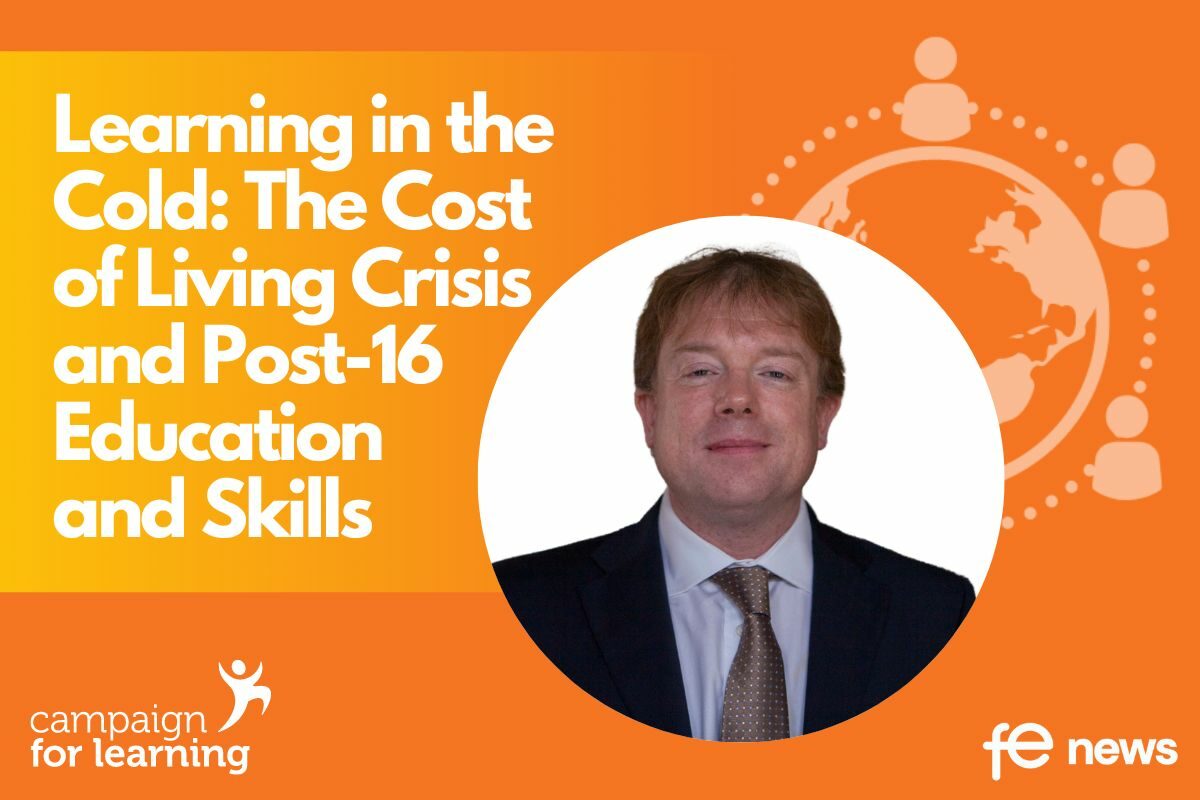The Cost-of-Living Crisis and Full-Time and Postgraduate Higher Education

University tuition fees have been debated endlessly across the UK since at least the Dearing Report over a quarter of a century ago. There is more than one way to pay for higher education and so it is of course reasonable to debate whether England, with its high fees and no student number caps, has a better or worse system than Scotland, with ‘free’ education and limits on the number of home students.
Maintenance and the Cost-of-Living Crisis
But to students already enrolled in higher education, debates about fees are largely irrelevant. Any change would take years and most of them will have graduated before it occurs. Rather, as the annual HEPI/Advance HE Student Academic Experience Survey confirms, today’s students are much more worried about day-to-day living costs.
It is the amount of money you have access to right now that determines if you can afford your rent, travel costs and food. The level of your bank account can determine whether you feel like you belong at your institution and are getting the most out of your course, or whether you are at risk of dropping out.
Real Terms Cut in the Value of Full-Time Maintenance Loans
Sadly, the Westminster Government to date has largely ignored students when it comes to tackling the cost-of-living crisis, with – for example – English maintenance loans going up by just over 2% while inflation surges past 10%. They have got away with it to date for a number of reasons.
For example, the excessive focus on tuition fees over other higher education policy issues has sapped most of the attention – even the NUS has only recently started putting sufficient focus on the cost of living.
Moreover, because the overwhelming majority of students (and young people in general) lean towards the political left and show little inclination to vote for the party currently in power, their votes are deemed already lost by those making the big decisions on tax and spending.
A Concerted and United Response
The cost-of-living crisis for students, just like the overall cost-of-living crisis, needs a concerted and united response. It should not just be an issue for the Department for Education but also for the Treasury and the Ministry of Housing, Communities and Local Government as well as institutions and those to whom power has been devolved. Otherwise, students will continue to fall through the cracks, which is clearly bad for them as individuals but will also leave society without the higher-level skills that a university education imparts and a modern economy needs.
Recommendation 1
We know that students face a big gap between their income and their expenditure – according to Save Our Student, it amounts to £289.20 a month on average. Those in power are likely to question such surveys but, sadly, they are the best we have to go on because the official and trusted Student Income and Expenditure Survey (SIES) has not happened since 2014/15.
We urgently need a quick official stop-gap alternative to the detailed SIES, so that we have some official figures for the gap between students’ income and expenditure. In time, we also need policymakers to depoliticise the process for setting each year’s maintenance support, perhaps by working out how much students actually need and then linking this more closely to the true rate of inflation.
Recommendation 2
We need more support to fill the gap between income and expenditure, such as by boosting hardship funding, doing more to tell parents what they are expected to contribute to their student children’s living costs, and looking afresh at the costs faced by the most disadvantaged students and those living in the most expensive cities.
This support should be sensitive to changing conditions. For example, if the expected recession occurs and it becomes harder for students to find a few hours of paid employment each week, that will be the difference between staying the course and dropping out for some.
Recommendation 3
We need to look again at financial support for Master’s students. In England, for example, they can currently access a loan of around £12,000 for both tuition and maintenance, yet it can be entirely swallowed up by tuition costs, leaving nowt for living costs. The arrangements differ across the UK (and are notably more generous in Wales) but they should be re- evaluated against the true cost of living and studying as a postgraduate.
By Nick Hillman, Director, Higher Education Policy Institute
This article is part of Campaign for Learning’s series: Learning in the cold: The Cost-of-Living Crisis and Post-16 Education and Skills
Order of series
Day 1
Friday 21st October
- Louise Murphy, Economist, Resolution Foundation: The Cost-of-Living and the Energy Crisis for Households
- James Kewin, Deputy Chief Executive, Sixth Form Colleges Association: The Cost-of-Living Crisis and 16-19 Year-Olds in Full-Time Further Education
Day 2
Saturday 22nd October
- Becci Newton, Public Policy Research Director, Institute for Employment Studies: The Cost-of-Living Crisis and 16-18 Year-Olds in Jobs with Apprenticeships
- Zach Wilson, Senior Analysis Officer and Andrea Barry, Analysis Manager, Youth Futures Foundation: The Cost-of-Living Crisis and 16-24 Year-Olds ‘Not in Full-Time Education’
Day 3
Monday 24th October
- Nick Hillman, Director, Higher Education Policy Institute: The Cost-of-Living Crisis and Full-Time and Postgraduate Higher Education
- Liz Marr, Pro-Vice Chancellor – Students, The Open University: The Cost-of-Living Crisis and Part-Time Higher Education in England
Day 4
Tuesday 25th October
- Steve Hewitt, Further Education Consultant: The Cost-of-Living Crisis: Access to HE and Foundation Year Programmes
- Sophia Warren, Senior Policy Analyst, Policy in Practice: The Cost-of-Living Crisis, Universal Credit, Jobs and Skills Training
Day 5
Wednesday 26th October
- Paul Bivand, Independent Labour Market Analyst: Economic Inactivity by the Over 50s, the Cost-of-Living Crisis and Adult Training
- Aidan Relf, Skills Consultant: The Cost-of-Living Crisis and Employer Demand for Level 2-7 Apprenticeships
Day 6
Thursday 27th October
- Mandy Crawford-Lee, Chief Executive, UVAC: The Cost-of-Living Crisis and Employer Demand for Level 4+ Apprenticeships and Part-Time Technical Education
- Simon Parkinson, Chief Executive, WEA: The Cost-of-Living Crisis and Adult Community Learning
Day 7
Friday 28th October
- David Hughes, Chief Executive, AoC: The Cost-of-Living Crisis and FE Colleges
- Jane Hickie, Chief Executive, AELP: The Cost-of-Living Crisis and Independent Training Providers
Day 8
Saturday 29th October
- Susan Pember, Policy Director, HOLEX: The Cost-of-Living Crisis and Adult Education Providers
- Martin Jones, Vice-Chancellor and David Etherington, Professor of Local and Regional Economic Development, Staffordshire University: The Cost-of-Living Crisis – The Response of Staffordshire University
- Chris Hale, Policy Director, Universities UK: The Cost-of-Living Crisis and Universities











Responses